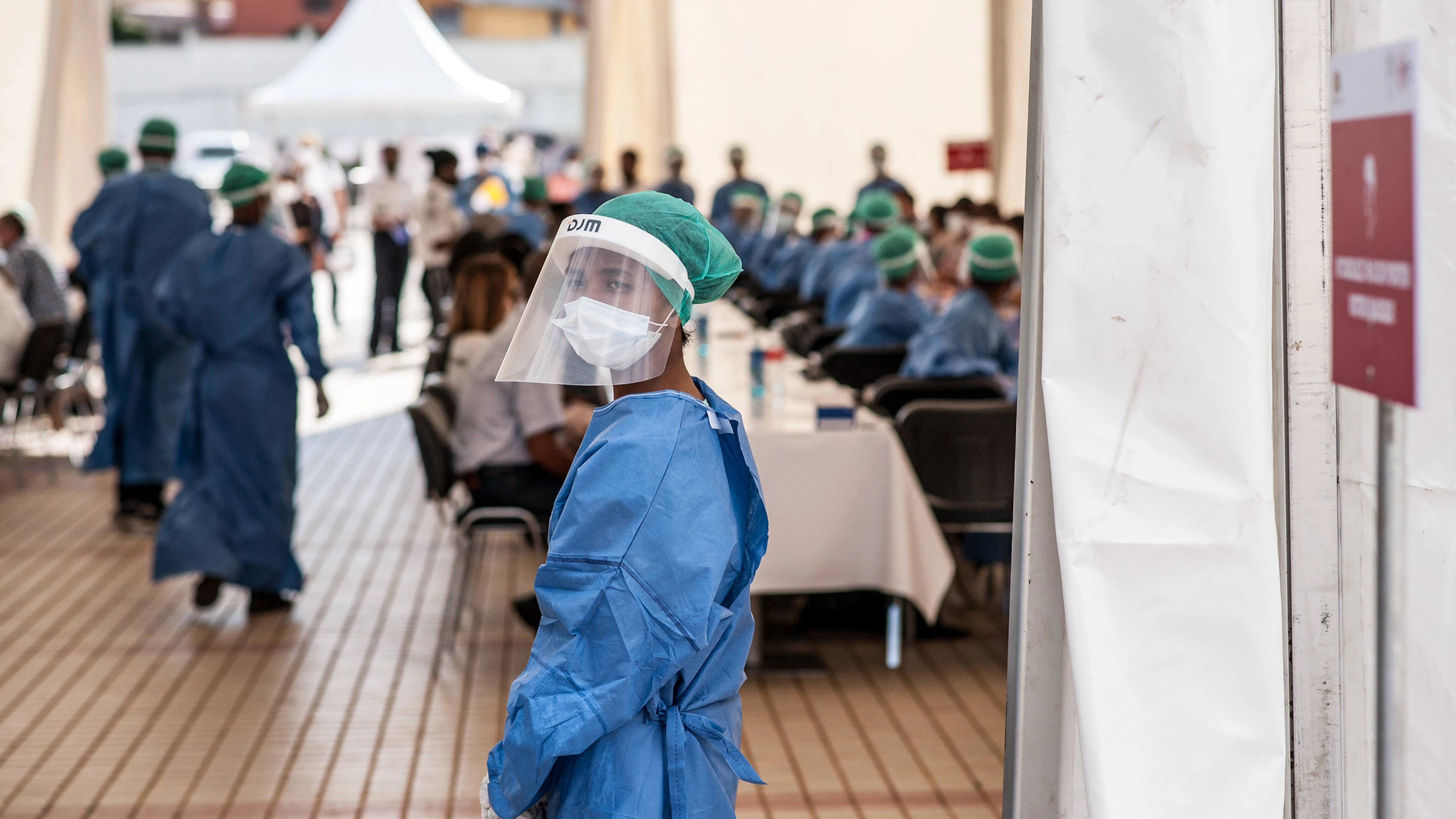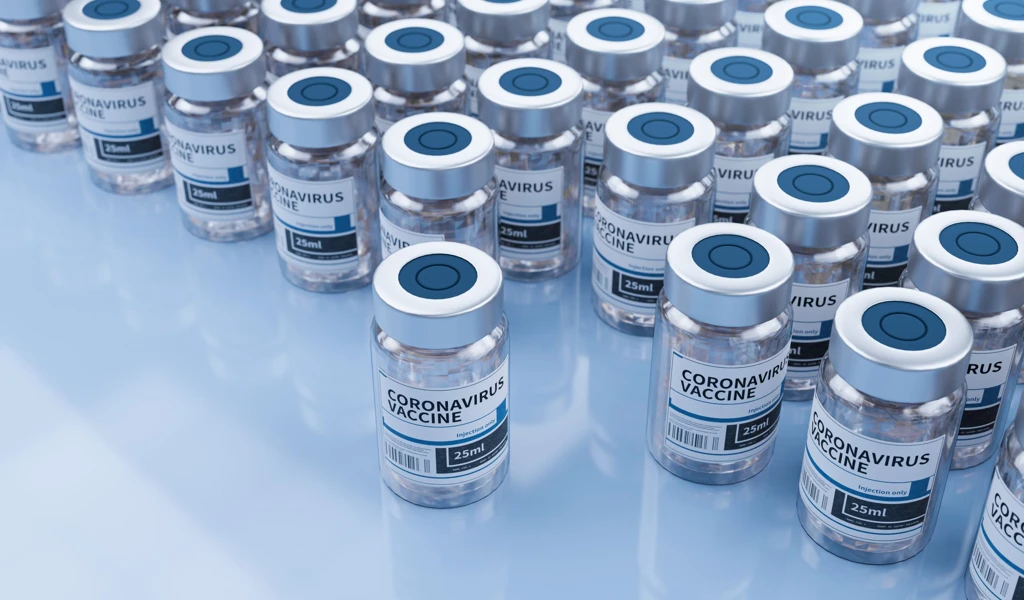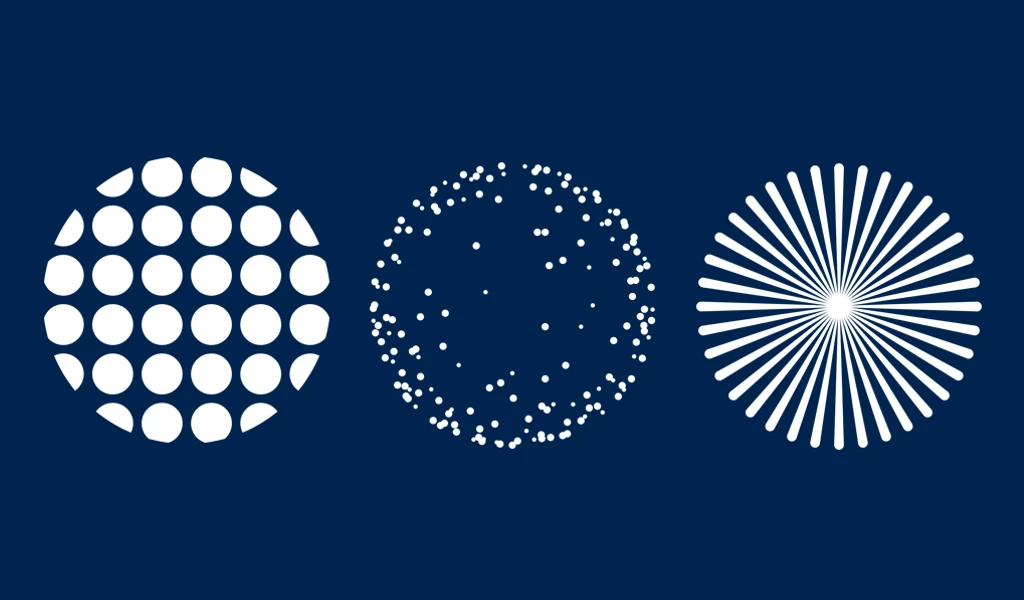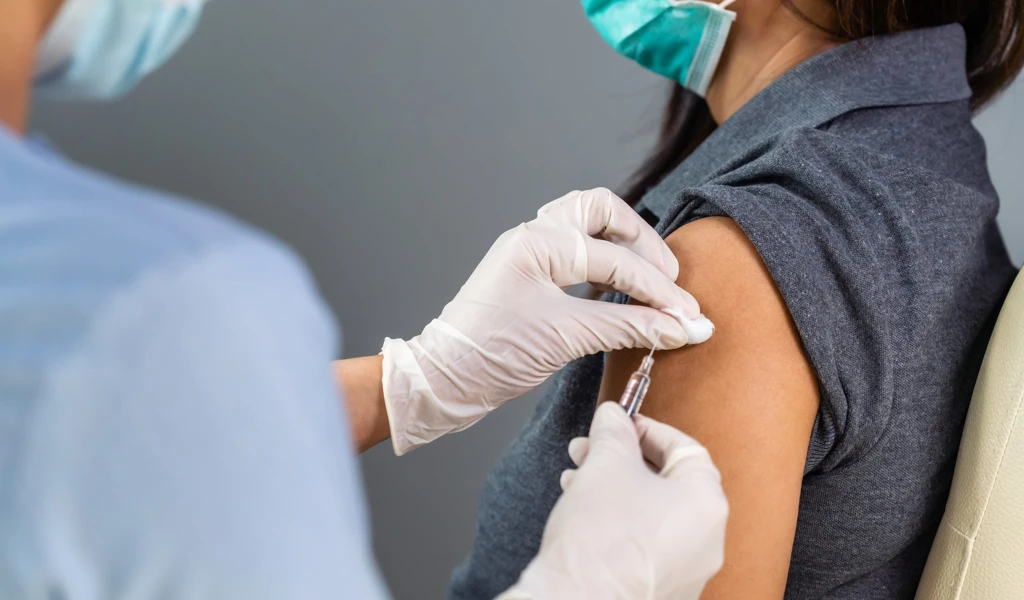The challenge of ensuring access to vaccines during a pandemic is fundamentally different to that during an epidemic; demand for a vaccine will be everywhere and at once. The initial supplies of successful COVID-19 vaccines will be insufficient to cover the entirety of the global population as manufacturing capacity and distribution networks ramp up to meet the need.
The world must avoid a scenario in which high-income countries monopolise the global supply, as we saw with the Swine Flu pandemic in 2009. There will be a need to balance the legitimate interest of countries to obtain vaccines to protect their own populations versus global solidarity needed to ensure deployment of finite doses of vaccine for those in most need, to maximise the global health benefit.
As long as there are cases of the virus anywhere in the world, everyone is at risk. There is a critical need for transformed and more inclusive preparedness and response arrangements that not only protect the most vulnerable populations but also mitigate the economic impact of pandemics. For example, in the context of COVID-19, the US, the UK, the EU and other high-income countries combined could lose about $119 billion a year in GDP if the poorest countries are denied a supply of COVID-19 vaccines. However, if these high-income countries paid for the supply of vaccines, there could be a benefit-to-cost ratio of 4.8 to 1. In other words, for every $1 spent, high-income countries would get back about $4.8. So it's in everybody's interests to make vaccines accessible based on need.
Our decision to invest in any vaccine candidate is based on scientific promise, and our core criteria of speed, scale, and access.
CEPI is committed to enabling equitable access to the COVID-19 vaccines it funds. CEPI foresaw the inevitable threat that vaccine nationalism would pose in the global response to COVID-19 and partnered with Gavi and the WHO to offer a global solution to this global problem: COVAX.
COVAX aims to make 2 billion doses of vaccine available by the end of 2021, through fair and equitable allocation of limited supplies of vaccine on the basis of ethical values and public health goals. COVAX is the fastest and fairest way to ensure that access to vaccines can be provided for every country.
Political will and funding are crucial if COVAX is to realise its goal of ensuring equitable access to all those in need—and the latest signals are encouraging. To date, 190 economies, across all tiers of national income, geographies, and representing around 90% of the world's population, have signed up to COVAX.
Equitable access to vaccines in a pandemic situation is influenced by many transnational issues, such as geopolitics and economics. For CEPI's part, it is able to make progress towards equitable access by using its R&D leadership role to weave the principles of access into its COVID-19 vaccine agreements.
Political will and funding are crucial if COVAX is to realise its goal of ensuring equitable access to all those in need.
CEPI has published a paper, "Enabling Equitable Access to COVID-19 Vaccines" , that details how it is enabling access in each of the vaccine development programmes it has invested in.
Our decision to invest in any vaccine candidate is based on scientific promise, and our core criteria of speed, scale, and access. The progress of our vaccine candidates is regularly assessed against these criteria by our team of leading vaccine-development and manufacturing experts.
Firstly, when it comes to making actual vaccine investments, CEPI ensures that the specific characteristics of the vaccine candidates it is supporting align with the WHO's target product profile for COVID-19 vaccines. In addition to safety and efficacy requirements, this product profile also includes factors that will be crucial for distribution in low-income and middle-income countries (LMICs), such as storage conditions, method and route of administration, cost of goods, and number of doses required (ie, one vs two doses).
Secondly, CEPI is supporting several projects to strengthen capacity and capabilities for enabling sciences, clinical trials, and regulatory affairs. For example, CEPI has established a global network of laboratories—accessible to all developers including those in LMICs—to enable uniform evaluation and identification of the most successful vaccine candidates. Importantly, and in line with the COVID-19 Technology Access Pool (C-TAP) proposals, CEPI funding agreements also require partners to publish and share data—whether positive or negative—to ensure that all can benefit from the work funded by CEPI.
It is crucial that vaccine R&D continues at pace and a broad, globally accessible, portfolio of vaccines is available for use in a range of at-risk populations and resource-settings.
Thirdly, CEPI's R&D investments are closely interlinked with increasing manufacturing capacity to meet global demand and provide doses for fair allocation through COVAX, to reduce the risk of LMICs being left behind in this time of crisis. Early in the pandemic, CEPI identified the urgent need to develop manufacturing capacity in parallel with clinical trials to ensure rapid supply of vaccine once approved by regulators. Therefore, CEPI has made substantial investments, at financial risk, to bolster global vaccine manufacturing capacity. Equitable access has guided these investments too. To date, CEPI has committed over US$1.1 billion in COVID-19 vaccine R&D and manufacturing agreements. If all of these investments yield safe and effective vaccines, based on current estimates from the manufacturing processes under development, COVAX could potentially be given the right of first refusal for over one billion doses of CEPI-funded vaccines. In a world where wealthy countries are competing to secure bilateral agreements with vaccine manufacturers this is critically important to achieving equitable access for all to vaccines.
CEPI does not seek to own the intellectual property (IP) developed from its partnerships but rather requires its development partners to manage their IP in such a way that equitable access can be realised—for instance, by making doses available to the COVAX Facility for fair allocation and procurement, and partnering with additional manufacturers to increase capacity. In the context of a pandemic response, speed is critical. CEPI considers this approach the most effective way of delivering vaccines to billions of people as quickly as possible, without stifling innovation or delaying the urgent vaccine development process.
In the long-run, the world will need multiple safe and effective vaccines to control COVID-19. The past few weeks have offered hope with the announcement of positive efficacy data from multiple vaccine developers. The speed at which the scientific community has responded to this pandemic is truly astounding. But huge challenges still remain. It is crucial that vaccine R&D continues at pace and a broad, globally accessible, portfolio of vaccines is available for use in a range of at-risk populations and resource-settings.
Read CEPI's "Enabling Equitable Access to COVID-19 Vaccines" paper.
Image credit: World Bank



